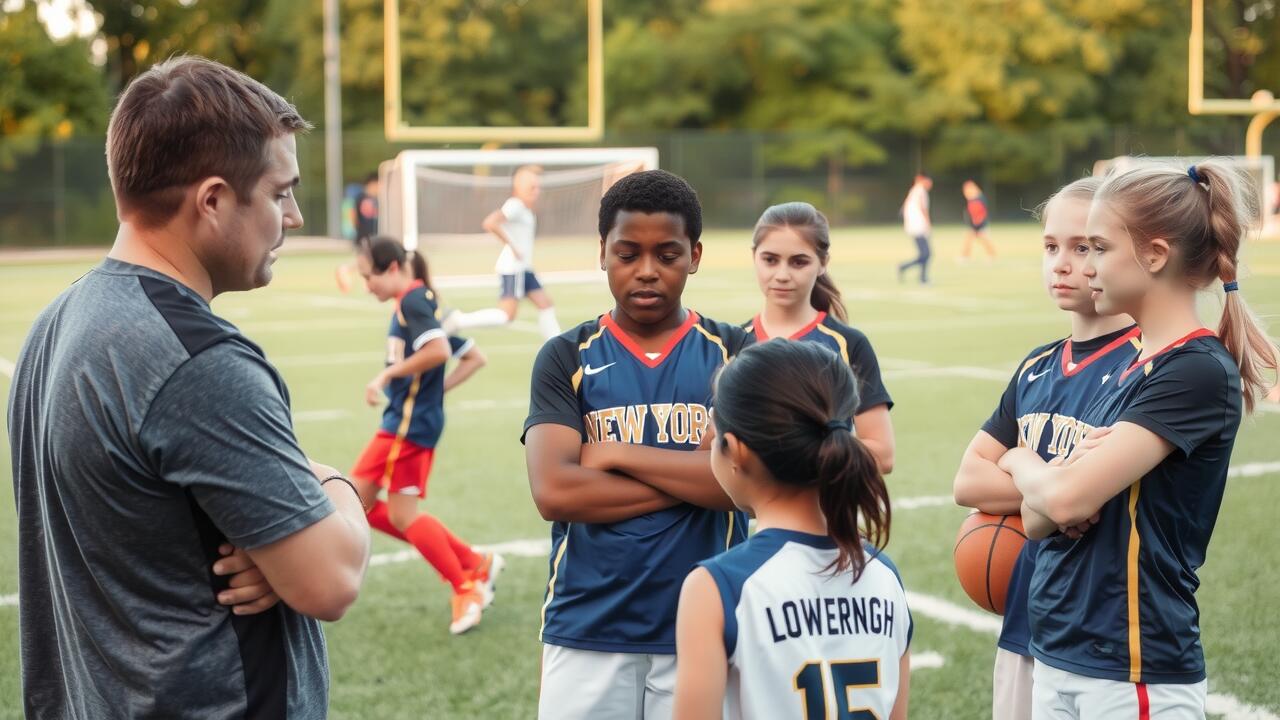
The Right to Enjoyment in Sports
Every young athlete deserves to participate in sports with a sense of enjoyment and fulfillment. Engaging in physical activities should not be solely about competition or performance. It is essential to create an environment where fun is prioritized, allowing young athletes to explore their passion for the game and develop a lifelong love for sports.
Promoting enjoyment also involves fostering a supportive atmosphere. Coaches, parents, and peers play crucial roles in shaping the experience. Emphasizing personal growth, teamwork, and the joy of play helps young athletes build confidence and resilience. When sports are viewed as an opportunity for social engagement and personal satisfaction, the overall experience becomes more rewarding and beneficial for all participants.
Promoting Fun and Engagement
Young athletes should experience the joy of participation in sports rather than pressure to win. Ensuring that games remain enjoyable fosters a lifelong love for physical activity. Coaches and organizations can implement fun drills and activities that prioritize enjoyment over competition. A playful atmosphere encourages creativity and teamwork, creating memories that transcend the game itself.
Moreover, incorporating elements like team-building exercises and recreational events strengthens relationships among athletes. Celebrating achievements, both big and small, cultivates a positive environment. When young athletes feel valued and supported, their engagement increases. This engagement directly enhances their overall development, not only as players but also as individuals.
Right to Voice Concerns
Young athletes should feel empowered to express their concerns regarding their sports experiences. When open dialogue is encouraged, young participants can share their feelings about coaching styles, team dynamics, or any issues that may affect their enjoyment and performance. Creating an environment where athletes can voice their opinions is essential for their overall development and well-being.
Coaches, parents, and organizations need to establish clear channels for communication. This ensures that young athletes not only feel heard but also understand that their feedback is taken seriously. Regular check-ins, anonymous feedback options, and supportive discussions can help reinforce this openness, ultimately fostering a more positive and inclusive sports experience.
Encouraging Open Communication
Young athletes should feel empowered to express their thoughts and feelings about their experiences in sports. Open communication fosters a supportive environment where concerns can be addressed constructively. Coaches, parents, and sports organizations play a crucial role in creating avenues for athletes to voice their opinions. Establishing regular check-ins or feedback sessions can help athletes articulate their needs and expectations.
Listening to young athletes promotes trust and confidence in their support systems. When coaches and officials actively encourage dialogue, it nurtures a culture of respect and understanding. Athletes benefit from knowing their voices matter and can influence decisions that impact their enjoyment and development in sports. This two-way communication ultimately enhances the overall experience for everyone involved.
The Right to Education
Young athletes deserve a comprehensive education that complements their sports training. This involves not only gaining skills pertinent to their sport but also acquiring important academic knowledge. Coaches and sports organizations play a vital role in supporting athletes to balance their commitments, ensuring that both their academic and sporting pursuits are valued equally.
Access to educational resources remains a critical aspect of a young athlete's development. Institutions should integrate academic support programs designed specifically for athletes, accommodating their rigorous schedules. This approach helps prevent the common dilemma of choosing between sports and studies, fostering an environment where young athletes can thrive both on the field and in the classroom.
Balancing Sports and Academics
Young athletes often face the challenge of juggling their commitments to sports with academic responsibilities. Educational institutions have an important role in fostering an environment that supports both aspects. This balance can enhance a student athlete's overall experience, reducing stress while promoting personal growth. Coaches and educators can collaborate to establish practices that prioritize academic success alongside sports participation.
Creating a culture that values education is essential for young athletes. Implementing policies that allow flexible practice schedules can provide the necessary time for homework and study. Schools can offer resources such as tutoring and academic counseling specifically tailored for athletes. This support encourages students to thrive both on the field and in the classroom, ensuring they are well-rounded individuals prepared for future challenges.
FAQS
What is the Young Athlete's Bill of Rights?
The Young Athlete's Bill of Rights is a framework designed to ensure that young athletes have a positive, enjoyable, and supportive experience in sports. It outlines specific rights that prioritize their well-being, enjoyment, and personal development.
What does the right to enjoyment in sports entail?
The right to enjoyment in sports emphasizes that participation should be fun and engaging for young athletes. This includes creating an environment where athletes feel motivated to participate, develop skills, and enjoy the competition without undue stress.
How does the Young Athlete's Bill of Rights promote open communication?
The Bill encourages young athletes to voice their concerns and opinions regarding their sports experiences. It fosters a culture of open dialogue between athletes, coaches, and parents to address any issues and enhance the overall experience.
Why is the right to education included in the Young Athlete's Bill of Rights?
The right to education acknowledges the importance of balancing sports with academic pursuits. It ensures that young athletes have access to educational resources and support to succeed both in sports and academics, promoting their holistic development.
How can parents and coaches support the rights outlined in the Young Athlete's Bill of Rights?
Parents and coaches can support these rights by fostering a positive sports environment, encouraging communication, prioritizing enjoyment, and ensuring that education remains a key focus. This support helps young athletes thrive in both sports and their academic lives.